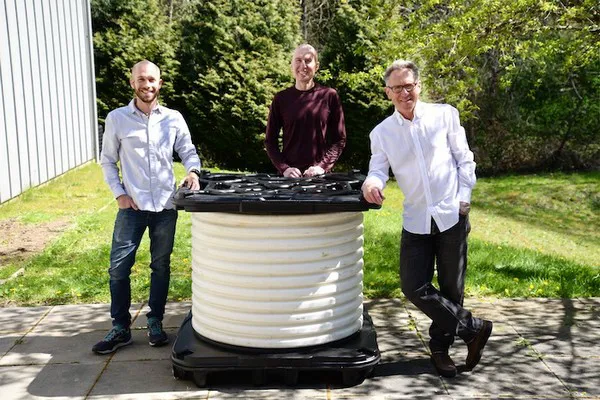RipeLocker announced it has raised $5 million in series B capital from angel investors. The investment round is all from previous investors in the company, many of whom are renowned in the agriculture industry, including academics, agriculture executives and growers, packers, and shippers. The new funds will be used to continue to enhance the company’s RipeLocker containers, utilize the precise operating data the company has accumulated after years of trials, and manufacture the containers for commercial availability for select clients this summer.
RipeLocker’s patented, dynamic, low-atmosphere RipeLocker containers are used for storing and shipping fresh produce and flowers, and extend the post-harvest life by weeks, often months. They are pallet-size, made from recycled materials, and are reusable. The company has already completed efficacy trials with several high-value commodities such as berries, pomegranates, cherries, papayas, fresh hops, and flowers.

“Over the past few years, we have been actively working with some of the largest growers in the world to test our RipeLocker containers. We are the only company with the data as to how perishables respond under low-pressure vacuum over long periods of time to delay senescence (aging) and decay,” said George Lobisser, founder and CEO of RipeLocker. “This infusion of significant new capital enables us to leverage this data, begin manufacturing the commercial product, and scale the company to meet the increasing demand from global and national produce and flower growers.”
RipeLocker also announced today that the USDA (US Department of Agriculture) has started trials using the RipeLocker container as a chemical-free quarantine replacement.
The technology behind RipeLocker containers
RipeLocker containers offer a unique, patented system to precisely manage the atmosphere (oxygen, pressure, CO2, and humidity) within the containers to extend the life of perishables. Based on the specific needs of each type of fresh produce or flower, RipeLocker tailors these operating parameters to optimize longevity and freshness. The system also responds to changes in the storage or shipping environment, making precise adjustments to prevent damage and reduce decay.
The company designed its containers so that they can easily be deployed and used in the existing cold chain. They are pallet-size, stackable and 40 of them fit into an ocean or truck reefer (refrigerated container). Produced via injection molds, the RipeLocker container is the first solution that can be delivered cost-effectively in mass volume. RipeLocker has patents on both the container design and method of operation.
Selected recently announced trials
RipeLocker made the following public announcements in the last six months about successful trials of its RipeLocker containers:
- Flowers. RipeLocker containers held freshly harvested roses in beautiful condition for four weeks. The trials were with Queen’s Flowers, the premier breeder, grower, importer, and bouquet manufacturer in the floral industry.
- Blueberries. RipeLocker containers held freshly harvested organic blueberries in pristine condition for eight weeks. The company used six of its pallet-size RipeLocker containers to store fresh organic blueberries from Blueberry Hill in the trial.
Fresh Hops. RipeLocker containers extended the life of fresh hops by six weeks. Trials were conducted in collaboration with CLS Farms, which provided 240 pounds of its fresh Comet and El Dorado hops, and Thomas Hooker Brewing Company, which ultimately brewed “Cultivate” beer with the fresh hops. Yakima Quality Hops, a well-known hop dealer, helped facilitate the collaboration.
All harvesting companies in the above trials plan to use RipeLocker containers when they become commercially available this summer. RipeLocker is also actively taking additional orders for use of its RipeLocker containers with produce and flower categories on which it has conducted significant efficacy trials.

